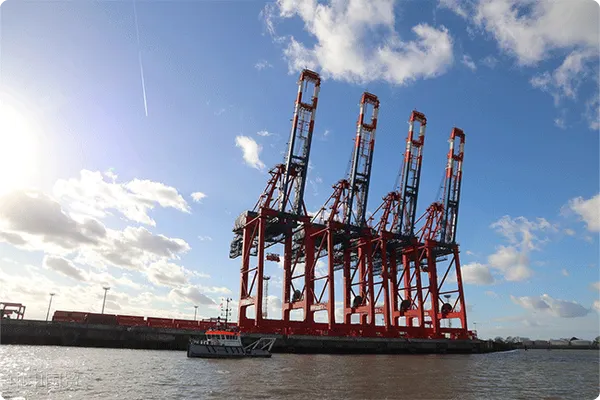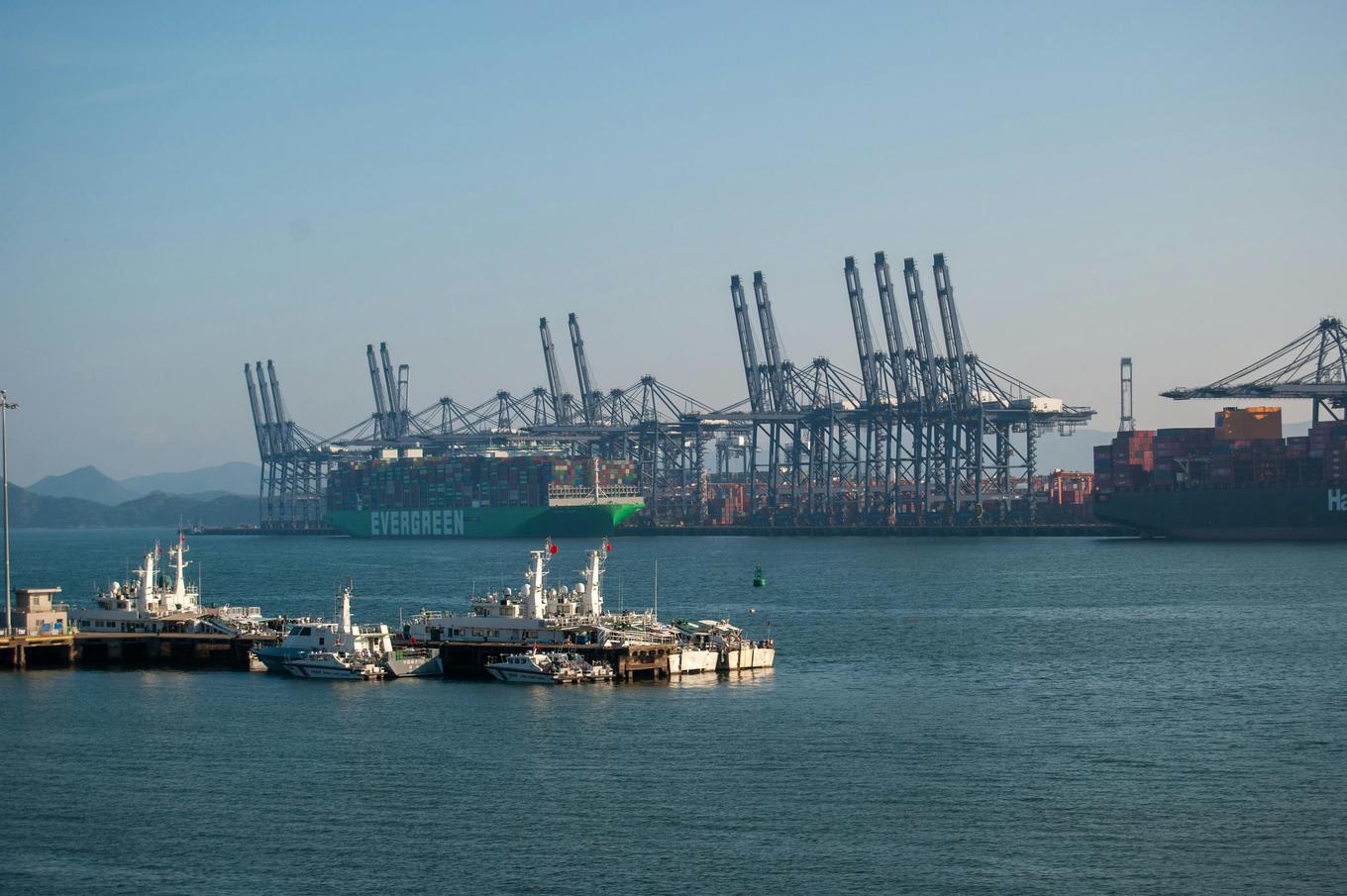- Shanghai Zhongshen International Trade Co., Ltd. - Two decades of trade agency expertise.
- Service Hotline: 139 1787 2118

Imported Casual Shoes: Challenges and Opportunities in the International Trade Environment
Against the backdrop of global trade integration, the imported casual footwear business is full of opportunities while also facing numerous challenges. The current international trade landscape is complex and volatile, with rising trade protectionism and frequent tariff adjustments. At the same time, regulatory requirements regarding product quality, environmental protection, and other aspects are becoming increasingly stringent across countries. However, with the growing global demand for casual footwear, particularly in markets such as Russia and Southeast Asia, the imported casual footwear business still holds vast potential for development.
Document Processing: The Fundamental Safeguard for Imported Casual Shoes
Document handling is crucial in the import business of casual shoes. From commercial invoices and bills of lading to packing lists, each document carries critical information and serves as the foundation for smooth customs clearance. The commercial invoice must meticulously record details such as the brand, model, quantity, and value of the casual shoes, ensuring complete accuracy. The bill of lading, as the certificate of ownership for the goods, requires even more careful handling.
When handling documents, the first priority is to ensure their authenticity and completeness. False or incomplete documents may lead to cargo detention or even customs penalties. Secondly, it is essential to familiarize yourself with the document requirements of different markets. For instance, Russian customs imposes stricter scrutiny on import documentation—in addition to standard documents, they may also requireIt is recommended to verify through the following methods:Additional documents such as certifications may also be required. In the Southeast Asian market, different countries have their own preferences and regulations. For example, Indonesia may require relevant test reports for casual shoes made of certain specific materials.
It is recommended to establish a strict review system when preparing documents. Assign dedicated personnel to handle the creation and verification of documents to ensure consistency in information across all documents and to prevent discrepancies and errors. Additionally, promptly track the circulation of documents to ensure all paperwork is ready before the goods arrive at the destination port, thereby avoiding additional demurrage charges due to document delays.
Logistics Arrangement: Ensuring the Smooth Delivery of Casual Shoes to the Destination
The logistics process directly determines whether imported casual shoes can reach consumers on time and in good condition. When selecting a logistics method, it is necessary to comprehensively consider factors such as the quantity, weight, delivery time, and cost of the goods. For large-scale imports of casual shoes,Maritime TransportationIt is usually a more economical option. However, shipping by sea takes a relatively long time, so the transportation plan needs to be planned in advance.
During the shipping process, it is essential to pay attention to the packaging and reinforcement of the goods. Casual shoes typically require appropriate cardboard boxes for packaging, along with cushioning materials inside the boxes to prevent damage from collisions during transportation. Additionally, it is important to select a reputable shipping company and monitor the stability of the sailing schedule to avoid delays that could affect delivery.
For small batch goods with higher requirements for delivery time,Air TransportationIt might be a better option. Although air freight costs are higher, the transportation speed is fast, which can meet the urgent needs of customers. When using air freight, attention should be paid to the size and weight restrictions of the cargo, as well as the special packaging requirements imposed by airlines.
In addition, whether it's by sea or air, it's essential to promptly track the transportation status of the goods. You can use the logistics tracking system to monitor the real-time location and estimated arrival time of the cargo, allowing for early preparation of customs clearance and pickup arrangements.
Russian market: VTBFX Settlement AgencyAdvantages Boost Trade
When conducting trade in casual shoes with Russia, foreign exchange settlement is a crucial step.ZhongShen International TradeIt possesses unique VTB foreign exchange settlement convenience in the Russian market. VTB Bank is a major commercial bank in Russia with close ties to international financial markets.
The foreign exchange settlement process typically proceeds as follows: After the importer receives the goods and confirms their accuracy, they will make payment to the exporter as stipulated in the contract. When conducting foreign exchange settlement through VTB Bank, the importer first needs to submit relevant trade documents to VTB Bank, such as the contract, commercial invoice, and bill of lading, to verify the authenticity of the trade. Once the bank approves the documents, it will convert the foreign currency into the local currency at the prevailing exchange rate and transfer the funds to the exporter.
The advantages of using VTB Bank for foreign exchange settlement lie in its extensive domestic settlement network in Russia, relatively fast processing speed, and its ability to effectively reduce settlement risks while ensuring the security and timely arrival of funds. At the same time, due to its close ties with the international financial system, it has rich experience and mature processes for international trade settlements.
It is recommended to choose based on transportation distance and product characteristics:import and exportProcesses and Solutions
Import Process
- Market research and supplier selection: Before importing casual shoes, it is essential to conduct thorough market research in Southeast Asia. Understand the preferences of local consumers, market demand, and competitive landscape. Identify suitable suppliers through channels such as trade fairs and online platforms. When selecting suppliers, evaluate their production capacity, product quality, and reputation, among other factors.
- Sign the Contract: After reaching a cooperation agreement with the supplier, sign a detailed import contract. The contract should clearly specify key terms such as product specifications, quantity, price, delivery period, and payment methods. At the same time, pay attention to the provisions in the contract regarding quality inspection, liability for breach of contract, and other aspects to safeguard your own rights and interests.
- Handling Relevant Procedures: In accordance with the regulatory requirements of Southeast Asian countries, handle the necessary procedures such as import licenses and certificates of origin. Different countries have varying requirements for the import of casual shoes. For instance, Vietnam may impose strict restrictions on the content of harmful substances in imported casual shoes, requiring relevant test reports to be provided.
- : After the goods arrive at the destination, agents assist enterprises in completing customs clearance and delivery.: Select the appropriate mode of transportation to ship the goods from Southeast Asia to the domestic market. At the same time, purchase transportation insurance for the goods to mitigate risks during transit.
- Clearance: After the goods arrive at the destination port, customs clearance procedures are required. Prepare complete documents, such as commercial invoices, bills of lading, packing lists, certificates of origin, etc., and declare them according to the requirements of the local customs. The customs will inspect the goods, and if they comply with relevant regulations, they will be released.
Solutions
- Responding to Regulatory Changes: Trade regulations in Southeast Asian countries are constantly evolving. To address this challenge, businesses should establish a regulatory tracking mechanism to stay updated on changes in laws and regulations. The latest information can be obtained by subscribing to professional trade information platforms or participating in industry seminars.
- Defect rate, after - sales response time: To ensure the quality of imported casual shoes, the contract should clearly specify the quality standards and require suppliers to provide quality inspection reports. Additionally, on-site inspections can be conducted during the production process, or a third-party inspection agency can be commissioned to perform the inspection.
- Logistics Optimization: By establishing long-term cooperative relationships with multiple logistics suppliers, we strive to secure more favorable prices and better services. At the same time, we leverage logistics information technology to optimize logistics routes and enhance logistics efficiency.
Product Certification Services: Facilitating Compliant Import of Casual Shoes
When importing casual shoes, product certification is an essential step. Different markets have varying certification requirements for casual shoes. For instance, entering the EU market requires CE certification to prove that the product complies with EU safety, health, and environmental standards. In Russia, GOST certification is necessary.
Although ZhongShen International Trade does not directly provide certification services, we will assist clients in the process. We inform clients about the type of certification required, the application procedures, and relevant considerations. During the assistance process, we help clients organize and prepare the necessary documentation for certification, guide them in communicating with certification bodies, and ensure the smooth progress of the certification work.
In conclusion, in the import business of casual shoes, facing the complex international trade environment, enterprises can better seize opportunities, address challenges, and achieve stable business development by adopting professional document handling, reasonable logistics arrangements, fully leveraging foreign exchange settlement advantages, and emphasizing product certification.
Related Recommendations
? 2025. All Rights Reserved. Shanghai ICP No. 2023007705-2  PSB Record: Shanghai No.31011502009912
PSB Record: Shanghai No.31011502009912










